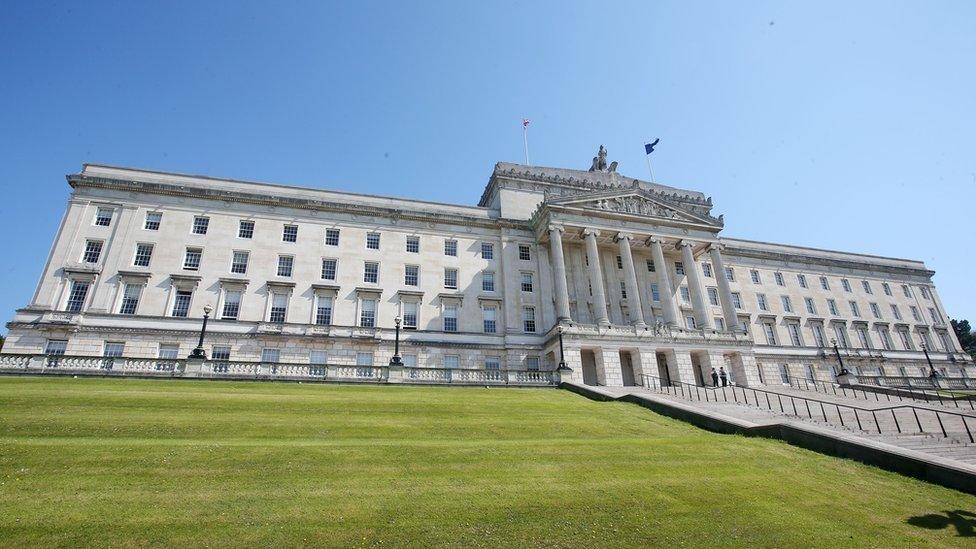Income tax: Stormont 'could get powers by 2027'
- Published
- comments

Income tax powers could be devolved to Northern Ireland by 2027 if there is political agreement to do so, an independent commission has concluded.
The Fiscal Commission has been examining the Stormont executive's responsibility for tax and spending.
It cautions there are "important considerations" about the political and administrative capacity for Stormont to take on new responsibilities.
The Stormont Executive and assembly is not currently functioning.
This is after the Democratic Unionist Party (DUP) withdrew in protest at the Northern Ireland Protocol.
In an interim report earlier this year, the commission found that giving Stormont ministers some control of income tax would be the most effective form of economic devolution.
However, the commission said "virtually everyone we spoke to raised the issue of the political capacity of the Northern Ireland Executive".
It added that concerns were expressed over the executive's stability, as well as its capacity to reach coherent and consistent policy decisions.
Some consulted saw this as "a strong argument against further devolution".
Others felt that devolving additional tax powers could help to build capacity and improve stability.
The commission said there was also the question of the administrative capability and capacity of the executive, and the Northern Ireland civil service to absorb and manage additional powers.
But it added the experience of Scotland and Wales showed this capacity could be developed over time so "it is not a reason in itself to not consider devolution".
Drawing on experience
The possibility is raised that smaller taxes like stamp duty and landfill tax could be devolved first to build "institutional capability and capacity".
Currently, the only significant revenue raising undertaken by Stormont is regional rates, a property tax paid by households and businesses.
Since 2015, Northern Ireland has had the power to cut corporation tax, albeit the Treasury first needs to be satisfied the executive's finances are on a sustainable footing.
Income tax has been partially devolved in Scotland since 2016 and means medium and higher earners pay more than in the rest of the UK.
Since 2019, the Welsh government has also been able to vary rates of income tax.
The commission says that drawing on the Welsh and Scottish experience it should be possible "to realise significant increased fiscal devolution to Northern Ireland" by 2027/28.
Its final report also suggests the UK government instigates a review aimed at creating a shared institutional framework for fiscal devolution across the UK.

The finance minister said the report identifies the "potential benefits of greater control over taxation"
Conor Murphy, who remains the finance minister, said the report "identifies the potential benefits of greater local control over taxation".
"More fiscal powers would allow locally elected ministers to set taxes in line with local needs and circumstances," the minister said.
He added the report provided the basis to begin a "public conversation on tax" and would allow an executive to consider how it could be best managed in Northern Ireland.
- Published22 March 2022

- Published13 December 2021

- Published5 April 2019
